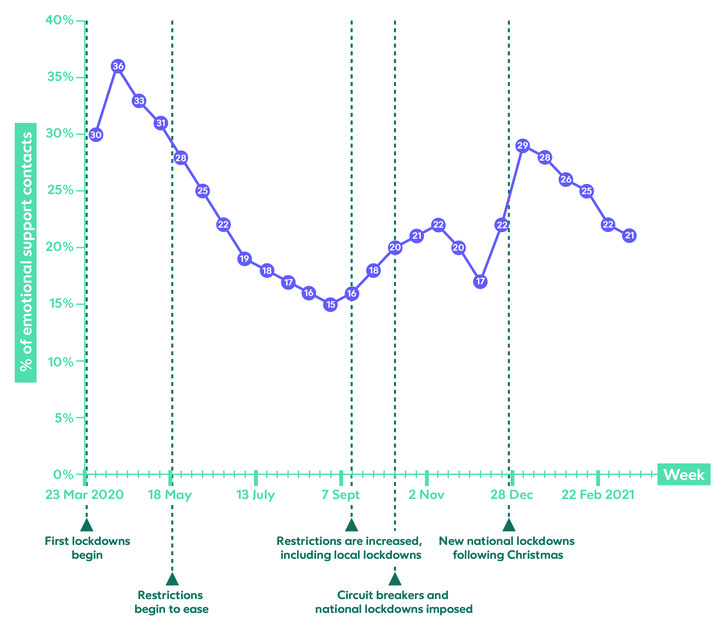Download document: One year on: how the coronavirus pandemic has affected wellbeing and suicidality
4.4 mb - PDF
These pages explore how the pandemic has affected wellbeing and suicide risk, based on findings from analysis of Samaritans service data and surveys of Samaritans volunteers.
The coronavirus pandemic has had profound social, psychological and economic impacts all over the world. Samaritans has seen the direct effect of this on people’s wellbeing in the UK and Ireland.
Over the year since restrictions began in March 2020, we conducted research to understand how coronavirus affected people who access our services. This involved analysis of anonymous data we routinely collect about our calls and emails, as well as surveys of our volunteers.
4.4 mb - PDF
In the year since the restrictions began in the UK (23 March 2020), we provided emotional support over 2.3 million times to people struggling to cope, by phone and email.
Coronavirus was raised as a specific concern in more than half a million emotional support contacts – 22% of the total number. However, our volunteers suggest it has affected all callers in some way.
Concerns about coronavirus peaked early in the first lockdown in April 2020, when this was a concern in over a third of all emotional support contacts. Since then, the pattern has generally mirrored UK lockdowns, with concerns about coronavirus being more common in times of tighter restrictions.
Concerns about coronavirus decreased over the summer months, before rising gradually through autumn and winter. During the January 2021 national lockdowns, discussion of coronavirus rose to its highest frequency (29 per cent) since mid-May 2020.

Percentage of emotional support contacts where coronavirus was a specific concern in the UK and ROI during the year since restrictions began. The pattern mirrors the restrictions that were in place, with concerns about coronavirus more common in times of tighter restrictions.